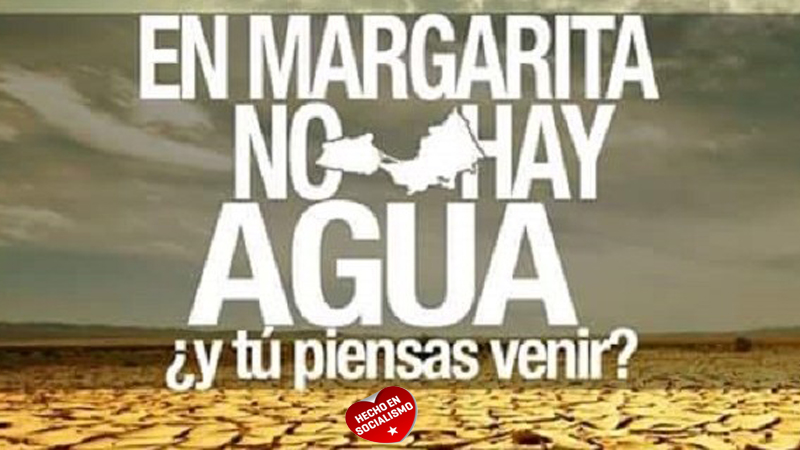Lying about Margarita
Sumito Estévez wants to persuade you Margarita is a swell place to vacation in 2016. In doing so, he makes himself an accomplice to an outright swindle.


Protesta por falta de agua.
I was born on Margarita Island and I lived there for 23 of the scant 26 years I’ve been on the planet. Ever since I can remember I had the sense that high season – which only later would I learn was a crucial economic driver for the island – meant the collapse of all public services. Tourist season always meant water rationing, blackouts and Caracas-style traffic on streets originally built for horse and mule traffic.
(No, seriously: the road that links Porlamar with the most popular beaches has just two lanes. Se imaginarán.)
Recently, on social media, a campaign was launched to persuade tourists not to come to Margarita this Easter holiday – or, well, at all. There’s just not enough water, not enough food, not enough power to go around.
Sumito Estévez – the celebrity chef, entrepreneur, political analyst and dental mechanic – is leading the charge against this campaign, with a series of tweets promising the island is as beautiful as ever.
https://twitter.com/sumitoestevez/status/711917943467220996
Sumito’s mantra crashes head on with what I’ve gathered from my mom and my friends back home about life these days on the island that’s as beautiful as ever. An international airport with no air conditioning and no running water greets tourists. Stories of holiday-makers forced to scoop up water from the swimming pool to be able to flush the toilet, daily protests over water rationing and a stifling fear of crime, which has become common place all over the country.
Here in Uruguay we play hosts to the Latin American branch of RCI, the time-share company. A friend who works customer service there tells me about the curious situations they deal with when clients go to Margarita. From five star hotels without toilet paper, to the astonished reaction of clients when they find staff staring vacantly at them as they explain that they do expect to be able to wipe their ass with TP daily. And then there’s the whole family of insanities around the black market for currency exchange, but that’s a whole other story.
The reality is that Margarita, today – despite its landscapes and its history – is in no condition to play host to anyone.
Faced with this sad situation, you have a choice: you either warn potential tourists through a “hateful campaign” via social media that Margarita’s become insufferable, or you deny it, lying to tourists so they’ll turn up, see the disaster with their own eyes and contribute, as ever, to the collapse of public services. This latter option has the single virtue that it guarantees that that tourist will never ever go back to the island again.
Frankly, only the first option strikes me as ethical, or even logical.
As a friend commented yesterday, promoting a place that won’t even allow you to flush the toilet in peace as a tourist destination amounts to theft. Unarmed theft, but theft nonetheless. Offering something you can’t deliver is a shakedown, no matter how sincere you might be in wishing you could offer it.
The thing that gets me is that Sumito, in his breathless boosterism, is engaged in the exact same deception as the government. Even if they have different motivations. They’re both saying everything my family and friends have to put up with is pura paja, and therefore they’re just paja-talkers.
And that’s just about the worst thing anybody can tell you when you’re struggling to get by.
Caracas Chronicles is 100% reader-supported.
We’ve been able to hang on for 22 years in one of the craziest media landscapes in the world. We’ve seen different media outlets in Venezuela (and abroad) closing shop, something we’re looking to avoid at all costs. Your collaboration goes a long way in helping us weather the storm.
Donate





